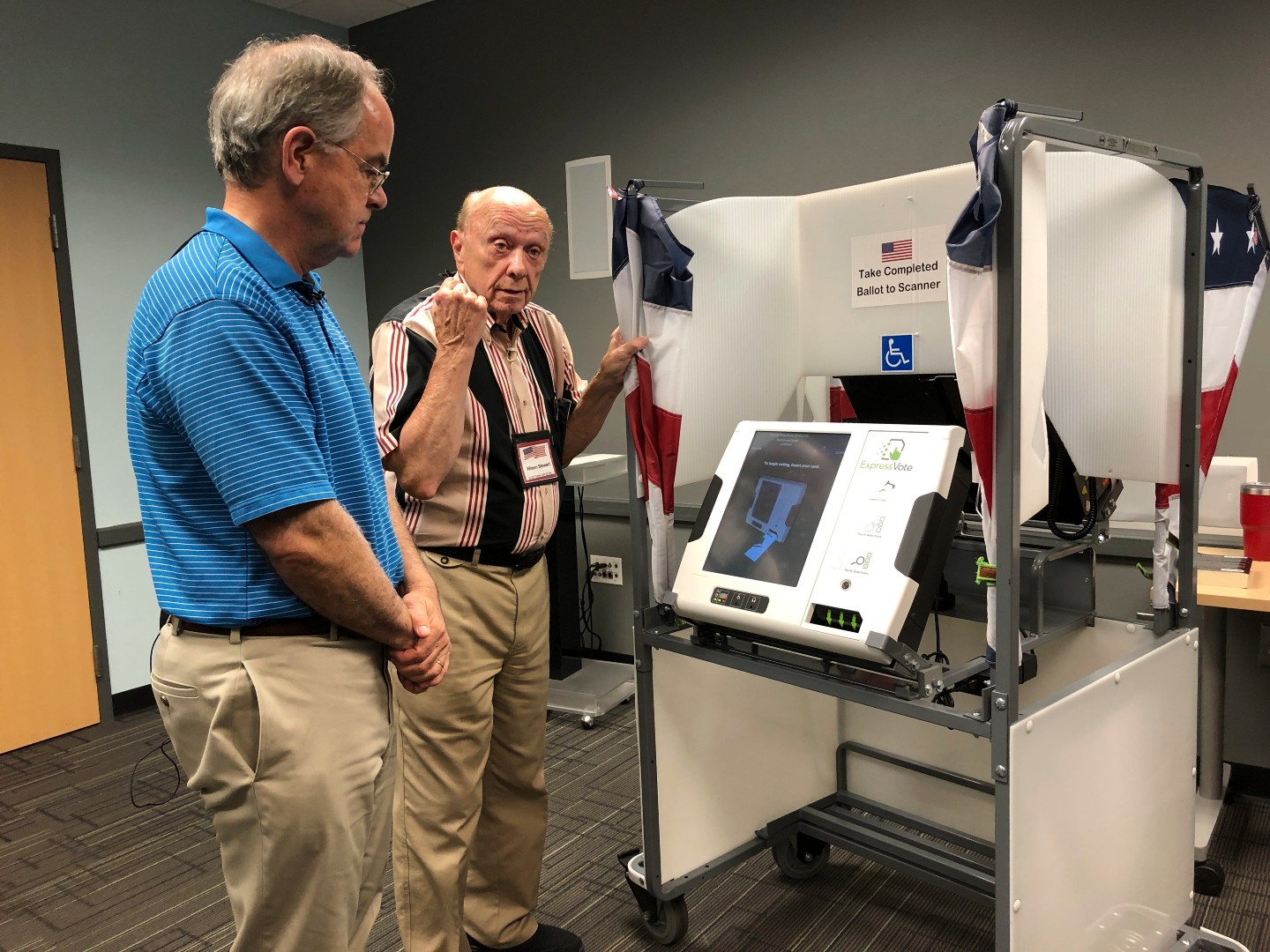
Each month, Sludge gives special recognition to a public official who has recently received an award from a lobbying group.
Jim Cooper, the ten-term Democratic representative from Tennessee, was named a Fiscal Hero in August by corporate front group the Campaign to Fix The Debt. Congratulations, Rep. Cooper!
The award often comes with a statuette, as can be seen in a past photo from fellow 2020 recipient Sen. Jon Tester—if Cooper received a hero statue this time, it could join his 2018 Fiscal Hero award on the mantle. In 2014, Cooper was one of 13 House members to win the award; last year, 28 representatives were recognized as heroes. (An economist might study the causes of the increase!)
Cooper, who represents Tennessee’s Fifth Congressional District encompassing Nashville, is a member of the conservative Blue Dog Coalition, a caucus of currently 18 Democratic reps that often votes with Republicans. During the Obama administration, the Blue Dogs worked to undermine Wall Street reforms, block a public option in Obamacare, and push the economic stimulus’ spending lower. More recently, the group’s co-chair, former Rep. Anthony Brindisi of New York, led a push to suppress generic drugs that would have benefited the Blue Dog PAC’s pharmaceutical industry donors.
The Fix the Debt campaign comes from the nonprofit Committee for a Responsible Federal Budget, which received major funding from the late Wall Street billionaire Pete Peterson, who pledged to spend $1 billion on deficit hawk causes like reducing Social Security and Medicare. Research in 2013 from the nonprofit Center for Media and Democracy found undisclosed conflicts of interest among Fix the Debt’s leaders, such as director Erskine Bowles’ generous compensation as a board member of Morgan Stanley. Other Fix the Debt leaders were found to have undisclosed board seats at companies including Honeywell, GE, Hess, Northrop Grumman, and Vanguard Health.
Earlier this month, progressive group Justice Democrats announced their backing of a primary challenge to Cooper in Odessa Kelly, a community organizer from East Nashville. The group’s press release called out Cooper for supporting the Balanced Budget Amendment as recently as 2019, which would force huge cuts on Social Security, Medicare, and Medicaid—in the case of Social Security, a service that over 3 in 5 seniors depends on for the majority of their income. Last year, Cooper won his Democratic primary against former public defender Keeda Haynes with just over 57% of almost 88,000 votes cast, about a 15,000 vote margin over his challenger.
As the fourth-ranking Democrat on the powerful House Armed Services Committee, which authorizes the vast defense budget, Cooper has oversight over funding that goes to his campaign contributors last cycle such as the PACs of defense contractors L3Harris Technologies, Northrop Grumman, and Raytheon. According to the Center for Responsive Politics, the defense aerospace industry has contributed over $247,000 to Cooper over his career. His sixth-highest career donor is the Blue Dog PAC, at $83,000.
Cooper is the chair of the Subcommittee on Strategic Forces, which oversees Departments of Defense and Energy programs on nuclear weapons and missiles. Amid the coronavirus pandemic last summer, Cooper voted against an amendment proposing a 10% cut in the defense budget, as did the majority of House Democrats, joining Republicans in shooting down a shift in some $74 billion in public dollars toward health care, housing, and education.
In January, Cooper warned against moving money out of military programs like the Space Force, which his subcommittee oversees, saying, “there are continuing cries to raid the defense budget to pay for other needs.” He added, “There’s an opportunity now to build on infrastructure needs of our nation, and space is the infrastructure of infrastructure. You really can’t do anything without a capable space network.” Cooper previously hailed the Trump administration’s creation of the Space Force, built out of his efforts with Republican Mike Rogers of Alabama to form a Space Corps: “What’s the difference between a Space Corps and a Space Force? One word.”
Longtime Defense Department watchdogs William Hartung, of the Center for International Policy, and Mandy Smithberger, of the Project on Government Oversight, strongly urged against the creation a Space Force in Oct. 2019, writing that a new military branch was likely to increase bureaucratic waste and develop costly weapons systems rather than manage risks cooperatively. Back in 2016, an internal Pentagon report found some $125 billion in bureaucratic waste that could have been saved as of this year, and House progressives have reintroduced their call to significantly reduce the $753 billion national security budget that President Biden has proposed for next year. Savings of that magnitude would deserve a nice statue.
For more coverage of defense industry pork-barrel spending by Congress, get the Sludge newsletter.
